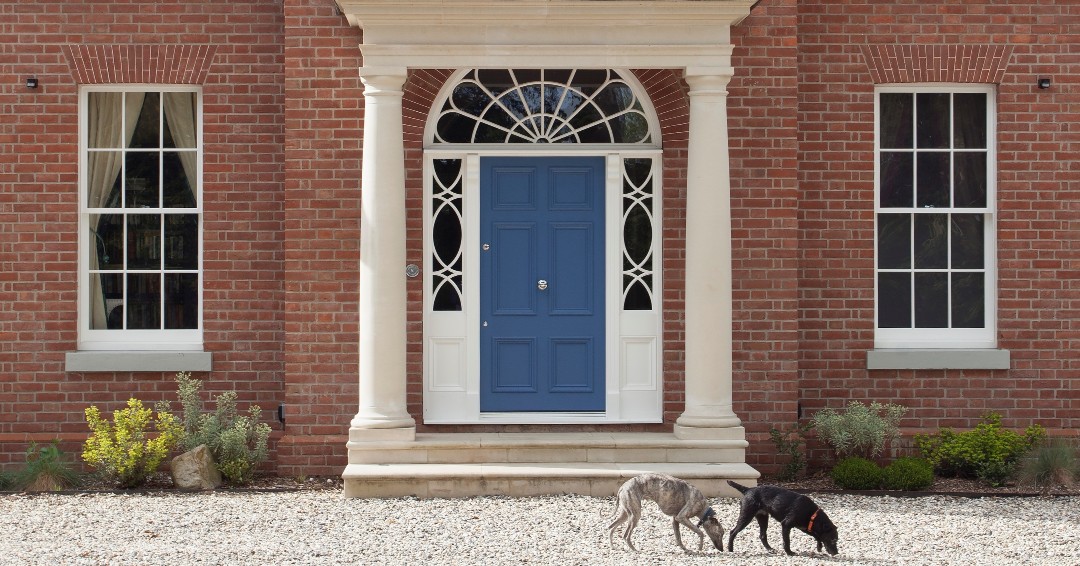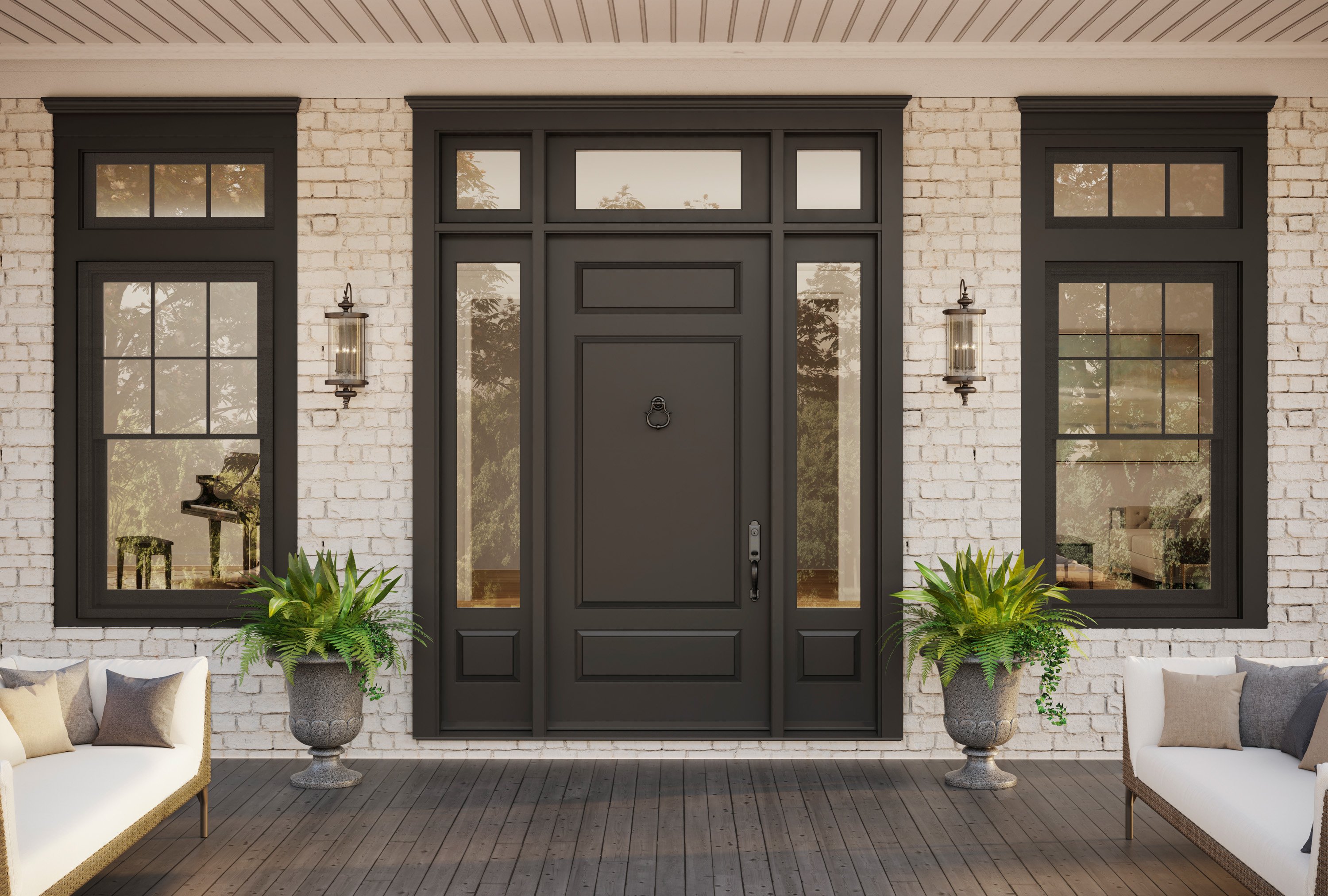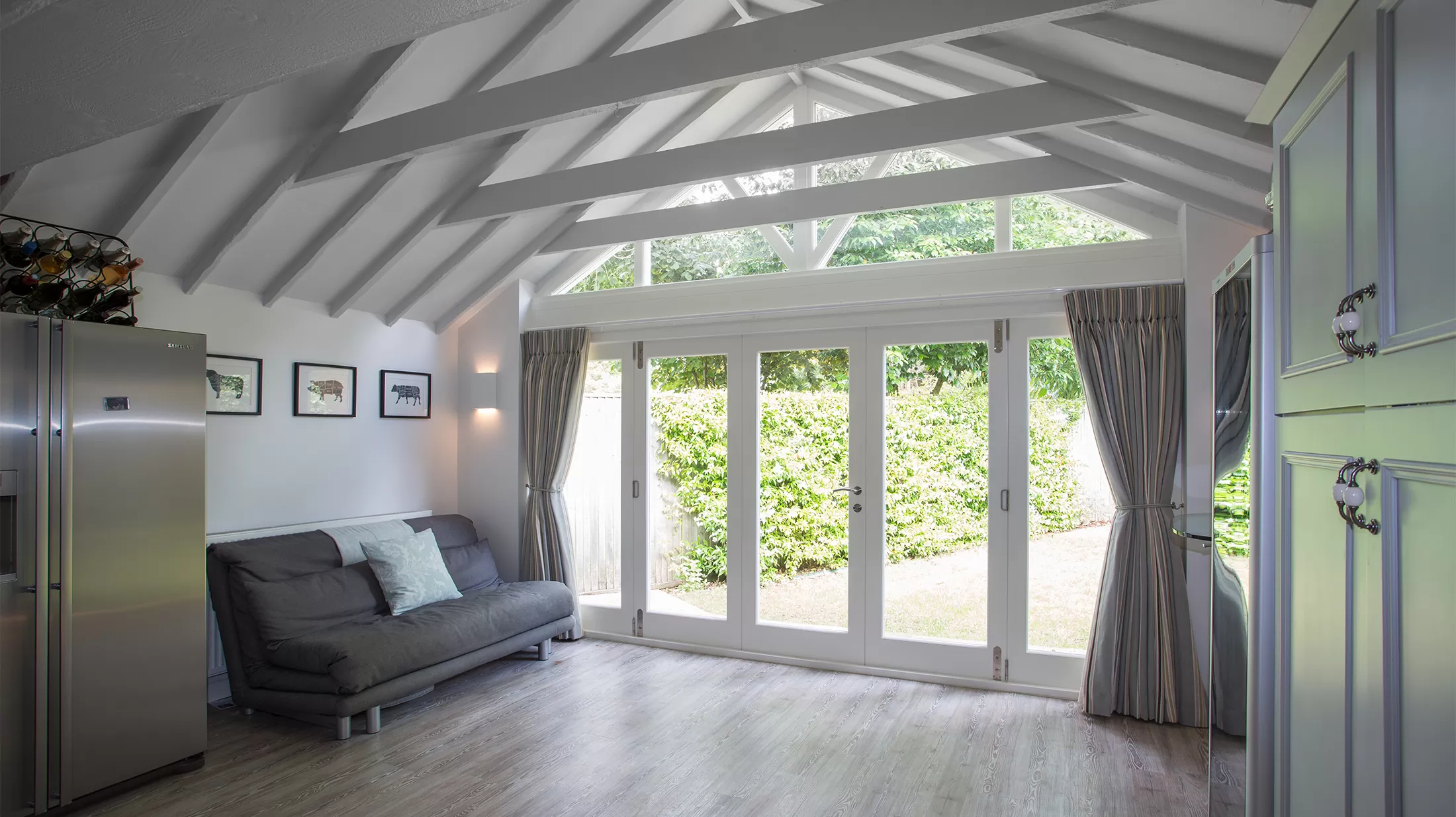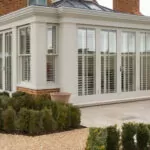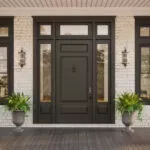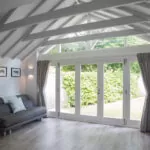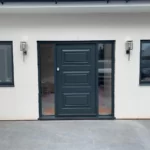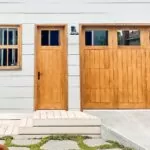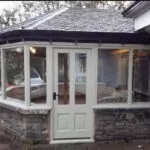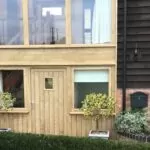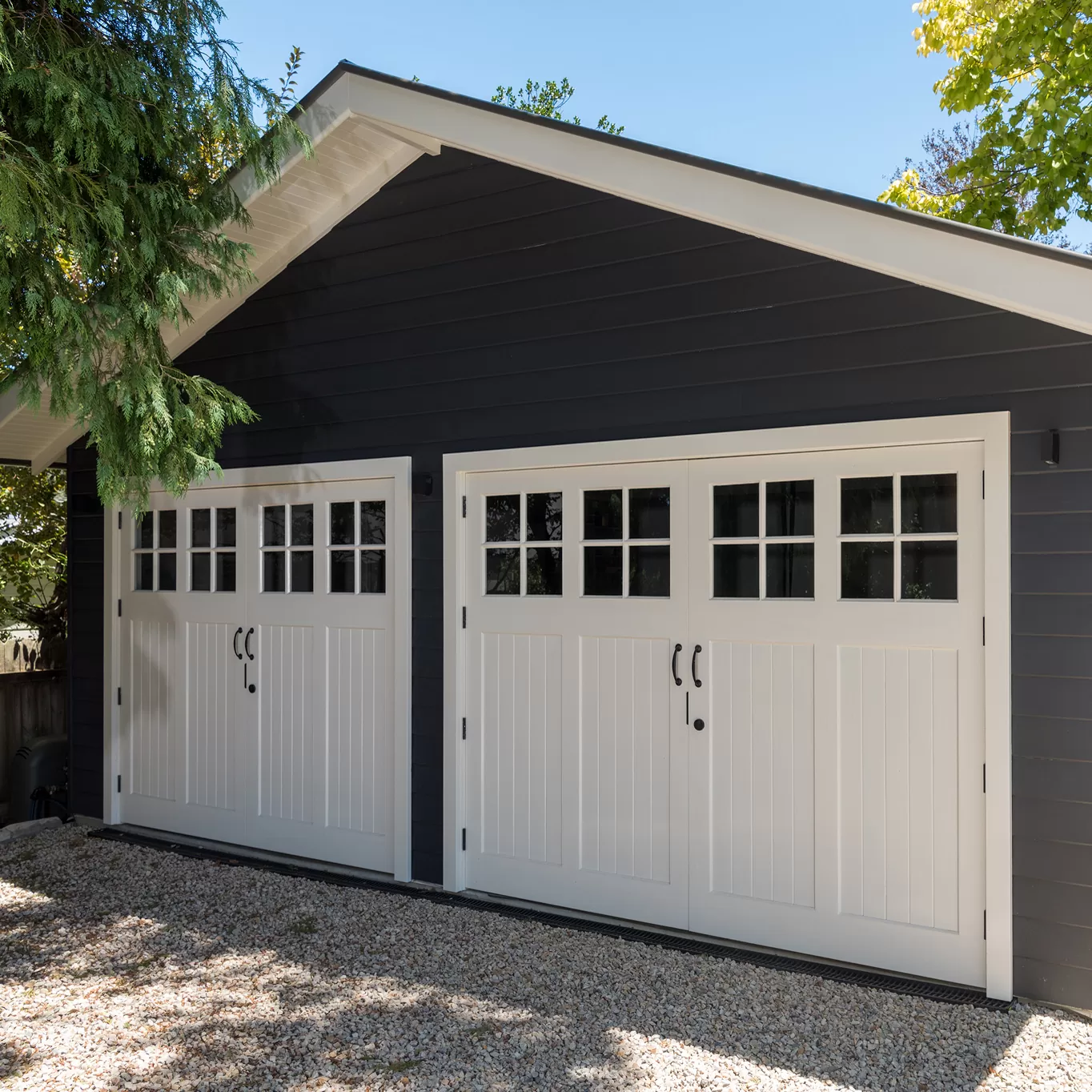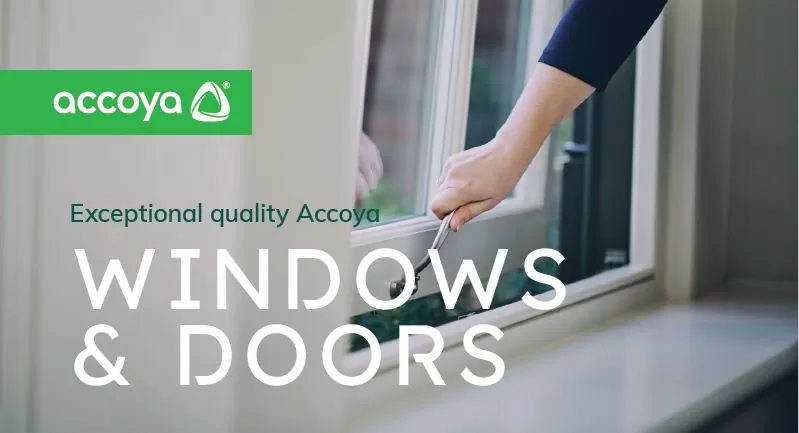WOODEN DOORS
EXTERNAL WOODEN DOORS
Durable wooden doors that exceed all expectationsA wooden door can be the face of a home, so it’s important to choose a door design that resonates with both the style of house and the homeowner’s personality.
External doors separate us from the elements, and it’s important to choose a door that’s going to stand the test of time. Accoya delivers like no other wood. It performs better, lasts longer and holds the highest durability classification there is. The benefits of choosing Accoya don’t stop there, with compelling thermal insulation properties and excellent stability, meaning you door won’t shrink, swell, and jam like other doors. That’s why the most discerning joiners in the UK work with Accoya as their material of choice for making beautiful, long-lasting wood doors. Whether you’re looking for an elegant wooden black door, blue door or even charred, Accoya is the perfect material for wooden external doors.

Long lasting
Solid wood with long lasting benefits – giving you that peace of mind and perfect for external wooden doors.
Ideal for coatings
Coatings look great on Accoya and last much longer, meaning your wooden door will be low maintenance, saving you time and money in the long run.

Natural wood
Accoya is natural wood. The excellent stability and durability exceed the advantages of traditional hardwood front doors, such as oak.
Bespoke options
As Accoya wood lasts a lifetime its easy to adjust the colour of your front door by repainting to match the on trend colour.
Accoya door performance
Accoya high performance doors out-perform traditional hardwoods and in many cases, PVC and aluminium.
| Key benefit | Accoya | Sapele | Oak | Meranti | Iroko | Redwood |
|---|---|---|---|---|---|---|
| Lifespan | ✓✓✓ | ✓(✓) | ✓(✓) | ✓(✓) | ✓✓ | ✓ |
| Warranty | ✓✓✓ | N/A | N/A | N/A | N/A | N/A |
| Coatings performance | ✓✓✓ | ✓✓ | ✓ | ✓ | ✓ | ✓ |
| Thermally insulating | ✓✓ | ✓ | ✓ | ✓ | ✓ | ✓✓ |
| Maintenance intervals | ✓✓✓ | ✓✓ | ✓ | ✓ | ✓ | ✓ |
Door styles
Accoya wood is very easy to work with and can be manufactured into many different door styles to suit any home.
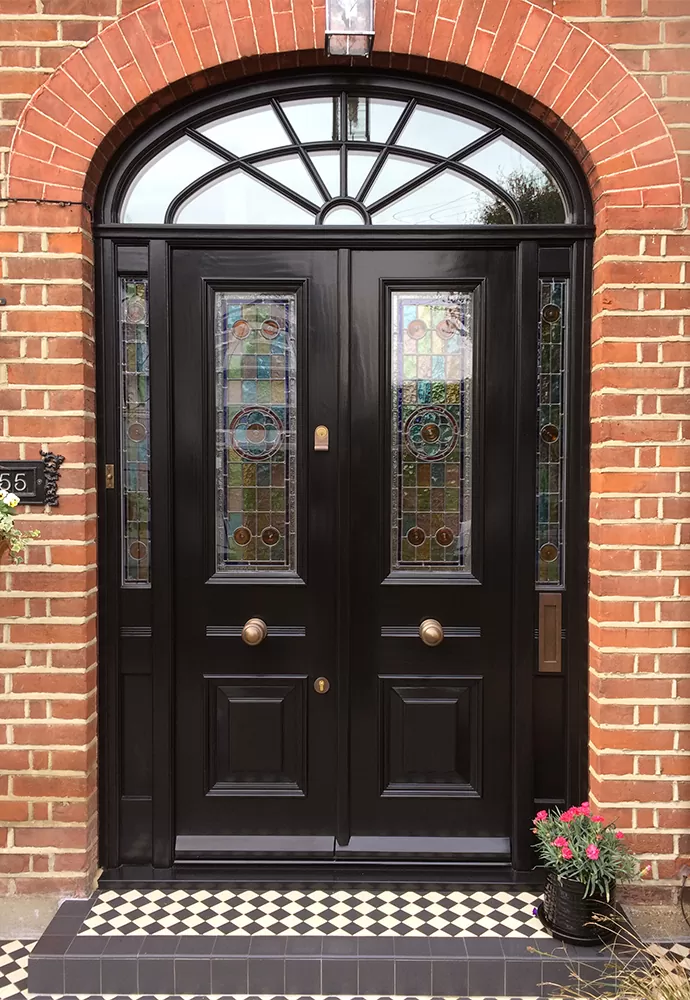
Tested to the limit
60 year service life
After running tests and reviewing external and independent data, the BRE concluded that Accoya wood, provided best design practice is followed, has a service life expectancy of 60 years when used in exterior applications such as timber doors and wooden door frames.
Part Q compliancy
To enable building regulation Part Q compliancy, Accsys in collaboration with UKAS approved test houses of timber window and wooden door manufacturers, ancillary suppliers to our industry and the BWF Federation has developed a security global assessment. This document allows for the successful security testing of Accoya windows and doors to be cascaded down to window and door manufacturers, thus limiting the need for further testing.
Thermal Performance
Accoya thermal conductivity has been assessed by IFT Rossenheim, Germany in accordance with EN 12664 and then developed into the required declared value format, under the most rigorous European assessment methods by the EN ISO 10456: 2008 procedure for determination of declared and design thermal values.
In comparison to other standard wood types for joinery, Accoya thermal conductivity is:
› Superior to softwood by 8%
› Superior to hardwood by 30%
Please see more information in our download section.
Coatings & Finishes
A fully factory coating is strongly recommended for Accoya doors. A variety of colours and finishes have been tested by leading coating manufacturers with outstanding results. Some examples can be seen below but the possibilities are endless.
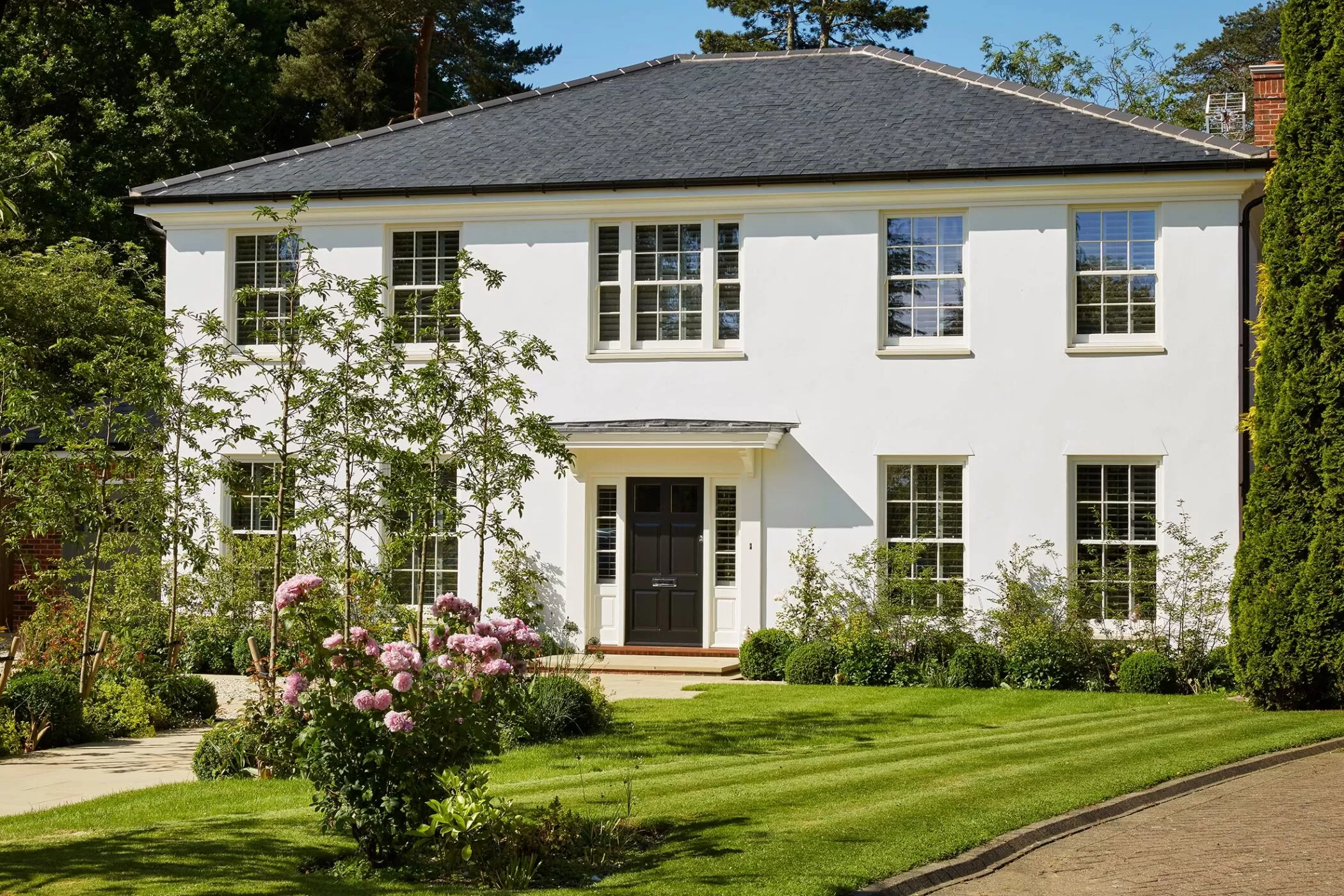
Case Study
Georgian design into 21st Century
Accoya, the world-leading high performance sustainable wood was selected by expert bespoke joinery company, Westbury Windows & Joinery for a recent renovation project. Accoya was chosen to create ‘Legacy’ sliding sash windows
In addition to the windows, Accoya wood was used for the six-panel entrance door, and also featured in the traditional ‘open-out’ style garage doors which were part glazed, part panelled. Due to its superior dimensional stability, coatings such as the Moss Grey finish applied to the Accoya panels on the garage doors, last twice as long, again offering home-owners a long-term, low maintenance solution without compromising quality.

Accoya door FAQs
-
Virtually all wood preserving treatments today work by impregnating toxic chemicals (such as arsenic, oils, ammonia or metal compounds) into the cell walls of the wood. This works to fill the voids within the wood but this doesn’t change the underlying chemistry. The toxicity of such products also have negative environmental implications during the serviceable life of the wood as well as during its disposal.
As an alternative, Accoya alters the wood’s structure to the core, creating an inhospitable environment and helping to control unwanted organisms, such as bacteria, viruses and fungi. The main alternative non-toxic preservative treatment to Accoya’s acetylation is “thermal modification”, a process which works by breaking down the edible components of the wood. However, the process both discolours and weakens the wood, rendering it unsuitable for many uses.
The Accoya production process does not weaken the original wood – in fact, its hardness is slightly improved and its bending strength uncompromised. Indeed, no modification process exists which offers the performance benefits and retained physical properties of Accoya.
-
From a technical performance perspective, in respect of attributes such as durability and dimensional stability, there is no need to finish Accoya wood for cladding and decking applications. However, joinery applications are more complex so it is recommended that you seek expert advice before using Accoya for uncoated windows and doors.
Like any natural wood species, Accoya wood is susceptible to weathering in outdoor circumstances. All materials exposed to exterior conditions are degraded by a series of chemical, biological and physical processes. The surface of any wood will be blemished by a combination of UV, moulds, algae, mildew, yeasts and pollution. Accoya is no exception and the initial light colour of uncoated Accoya may causes early moulds and blemishes to stand out more than on other wood types, prior to it weathering further to grey.
-
Wood is an amazing material with many possibilities and practical applications. One of the major drawbacks of wood though, especially softwood, is how it interacts with water. Moisture causes the wood to swell and shrink, and accelerates damage and decay.
So, what is acetylation?
Wood naturally contains some acetyls, but also a lot of ‘free hydroxyls’ – these are what water binds to, causing all those problems. In our reactors, our process uses acetic anhydride – essentially very strong vinegar – to boost the acetyl content of the wood, replacing those hydroxyls…meaning water is no longer an issue.
This means we’re not adding anything to the wood that wasn’t already there – no toxic elements that could later leach out - we are really enhancing the natural qualities of the wood.
Even the by-product of our process is part of the circular economy: acetic acid is valued in its own right, used in other products, processes or even turned back into acetic anhydride – offering a potentially ‘closed loop’ cycle for our chemistry.
We constantly refine and improve our processes to improve quality and efficiency, and research the effects with different wood species.
Watch our video here.
-
Accoya wood is made from radiata pine trees. These are sourced and taken to our production facilities in the Netherlands where they undergo a modification process, more specifically known as Acetylation. This process turns the radiata pine wood into the worlds most stable wood, Accoya.
More information about the Acetylation process can be found here.
Resources for Accoya doors

